Two of the peeps in the other raft are a couple of extremely annoying children, perhaps 10- and 12-years-old, traveling with their aunt from New Jersey. The kids annoy the hell out of all of us, particularly the River Buddha who has made it clear to Arlo, when it was suggested after lunch that we switch oarboats, that he prefers the current arrangements.
“Some things, like snow and children, look better on TV,” he told Arlo.
Late in the afternoon, we made camp at Mud Beach. The crew had already set up our tents and as we came ashore, Sarah Jane, sartorially splendid in a silk Hawaiian shirt and a tie-dyed bandana with appliquéd daisies, came down to greet us at the water’s edge with a plate of appetizers—roasted heads of garlic, fresh guacamole, sesame flat bread—and chilled wine.
The campsite is on a long sandbar with cattails along the banks. A kingfisher flew off when I approached. On the far end of the sandbank was a thick, muddy crescent of beach. It took the two New Jersey kids about three minutes to discover these natural mud baths. Dressed only in their bathing suits, they rolled around in the gooey mess, their limbs, their suits, their faces, and finally their hair all turning the color of a melted Hershey bar.
Another group of river rafters slowly drifted by and as they got near our shore, the New Jersey kids jumped up and down making monkey noises.”How much for the little brown people?” a shirtless young man called out from the drifting boat.
The River Buddha, holding a glass of Chardonnay in his hand while standing knee-deep in water, looked over his shoulder to see if the aunt was listening and then shouted, “They’re free. But, please, hurry.”
I’ve got to say I’m enjoying the River Buddha immensely.

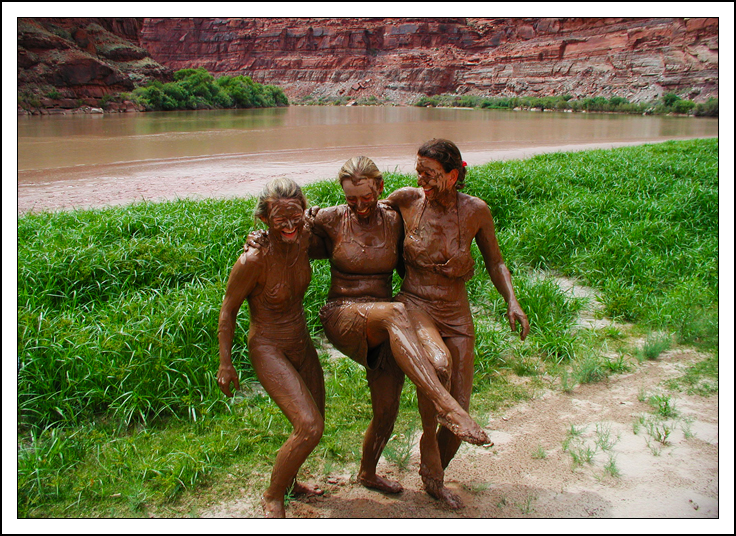
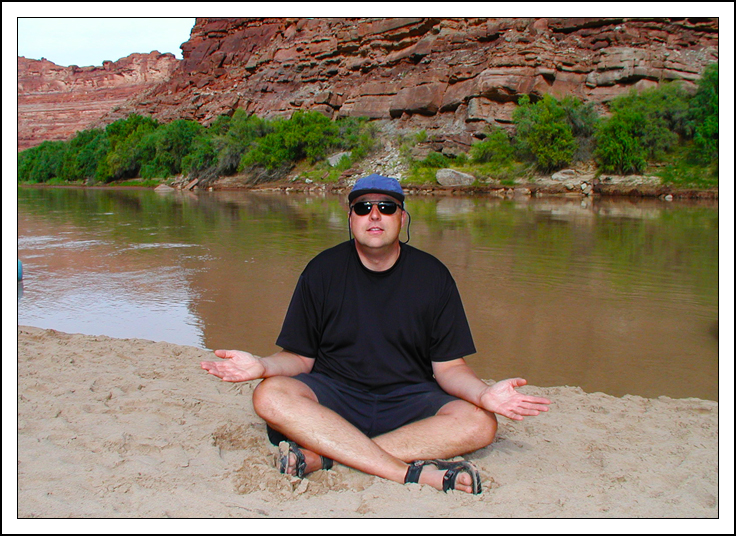

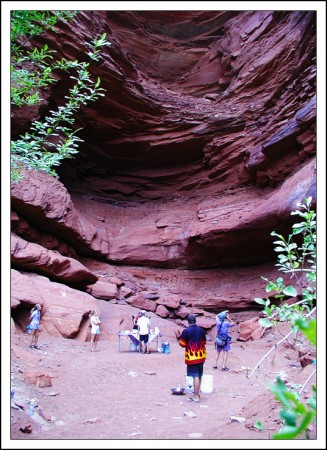
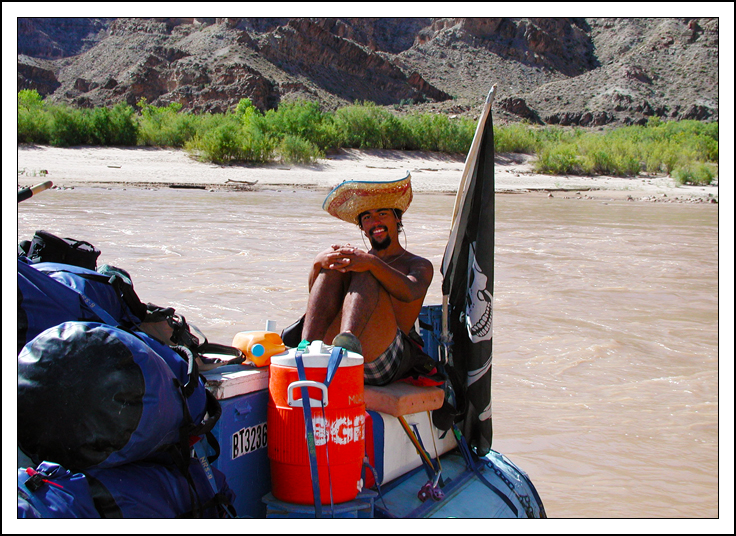
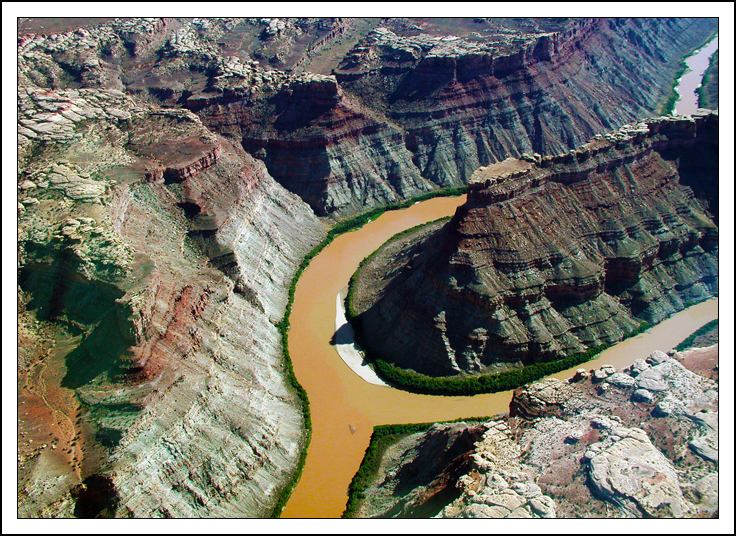
Recent Comments